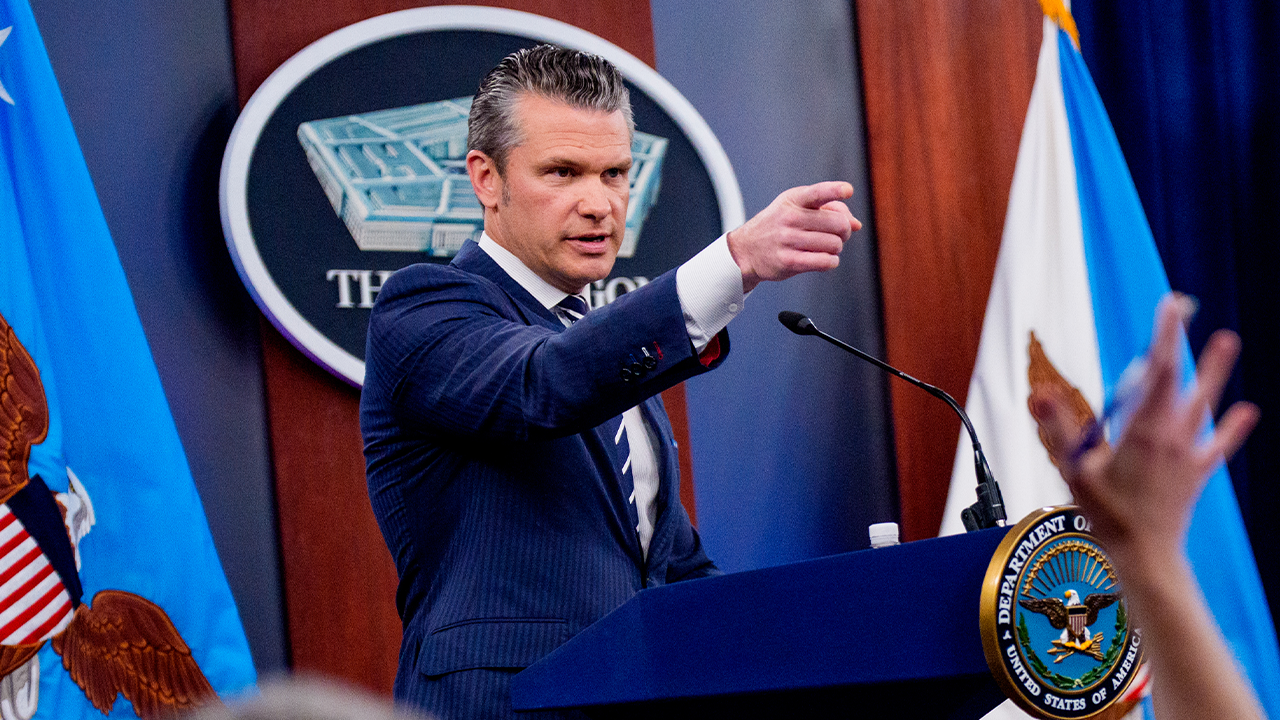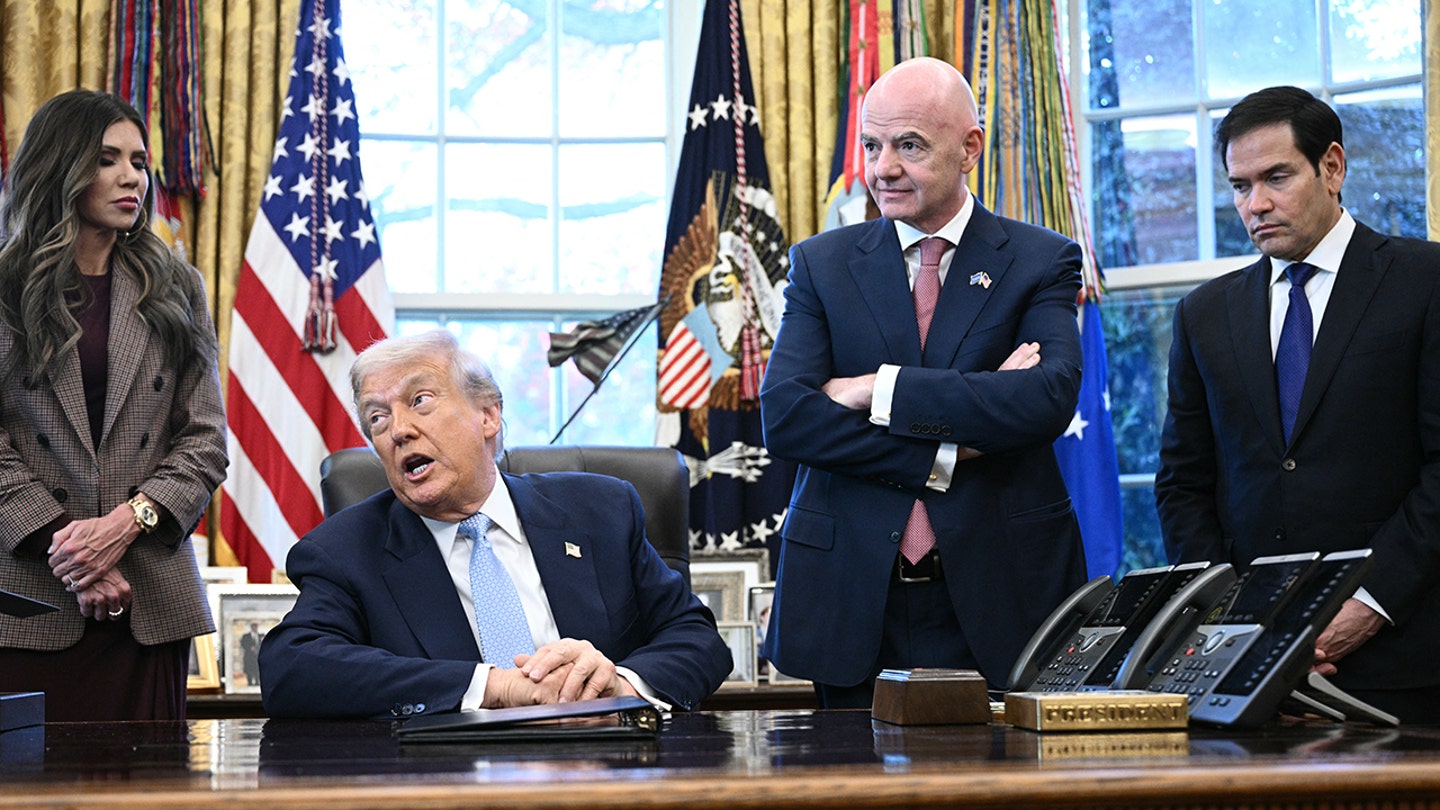
California sheriff refuses to support ICE operations around Super Bowl LX
Entities mentioned:
- ICE: Control, Security, Duty
- Sheriff Bob Jonsen: Righteousness, Loyalty, Security
- DHS: Security, Duty, Control
- Corey Lewandowski: Loyalty, Determination, Control
- President Donald Trump: Power, Control, Influence
Article Assessment:
Credibility Score: 75/100
Bias Rating: 55/100 (Center)
Sentiment Score: 35/100
Authoritarianism Risk: 45/100 (Mixed/Neutral)
Bias Analysis:
The article presents multiple viewpoints, including those of local law enforcement and federal agencies. While it leans slightly towards the local perspective, it still includes statements from DHS and Trump administration officials.
Key metric: Immigration Enforcement Effectiveness
Let me tell you something - this story is RIDICULOUS! We've got a real clash of titans brewing in Santa Clara, folks! On one side, we've got ICE and DHS, coming in hot like a blitzing defense, ready to sack any illegal immigrants they can find. But wait! Here comes Sheriff Jonsen, the hometown hero, throwing up a BRICK WALL of a defense, refusing to play ball with the feds! This is a classic matchup of offense vs defense, with the Super Bowl as the ultimate playing field! I'm telling you right now, we're seeing some fourth quarter moves from both teams. ICE is trying to execute their gameplan, but Jonsen's squad is showing true championship mentality, sticking to their guns and protecting their home turf. This is the kind of political football that keeps fans on the edge of their seats!

ICE agents will conduct enforcement operations at Super Bowl LX, official says
Entities mentioned:
- ICE (Immigration and Customs Enforcement): Duty, Control, Security
- Department of Homeland Security (DHS): Security, Duty, Control
- President Donald Trump: Power, Control, Influence
- Bad Bunny: Self-respect, Freedom, Recognition
- NFL: Professional pride, Recognition, Influence
Article Assessment:
Credibility Score: 70/100
Bias Rating: 65/100 (Lean Right)
Sentiment Score: 35/100
Authoritarianism Risk: 65/100 (Authoritarian Tendencies)
Bias Analysis:
The article leans right, giving more space to Trump's perspective and ICE's actions. It presents criticisms of Bad Bunny and the NFL's decisions, while downplaying opposing viewpoints.
Key metric: Immigration Enforcement Actions
Let me tell you something, folks - this is a GAME-CHANGER! The Department of Homeland Security is bringing their A-game to the biggest sporting event of the year! ICE is suiting up and hitting the field at Super Bowl LX, and they're not there to watch the commercials! This is a fourth-quarter blitz on illegal immigration, with President Trump calling the plays from the sidelines. Bad Bunny and the NFL find themselves on the defensive, trying to dodge tackles from the administration. It's a high-stakes match-up between entertainment and enforcement, and I'm telling you right now, there's no neutral zone in this showdown! The real question is: who's going to come out on top in this political pigskin battle?

NBA heckler yells 'leave Greenland alone' during US national anthem at London game
Entities mentioned:
- United States: Power, Control, Security
- NBA Heckler: Moral outrage, Justice, Righteousness
- President Donald Trump: Ambition, Power, Control
- Denmark: Self-preservation, Security, Wariness
- NATO allies: Unity, Security, Wariness
Article Assessment:
Credibility Score: 70/100
Bias Rating: 55/100 (Center)
Sentiment Score: 30/100
Authoritarianism Risk: 65/100 (Authoritarian Tendencies)
Bias Analysis:
The article presents multiple viewpoints, including criticism of the US stance. However, it leans slightly towards emphasizing US actions and reactions, giving more context to the US position.
Key metric: International Relations Score
Let me tell you something, folks - this is a GAME-CHANGING play in the international arena! The United States is coming out swinging, trying to make a power move on Greenland like it's the fourth quarter and they're down by 20! But hold on to your hats, because we've got a surprise player off the bench - an NBA heckler stepping up to the plate and calling out this aggressive strategy! It's like watching a rookie challenge the star player, and let me tell you, the crowd is eating it up! President Trump is playing hardball, threatening tariffs like he's throwing fastballs, but Denmark and the NATO allies are bringing their A-game defense. This is turning into a full-court press situation, with European countries rushing to guard Greenland like it's the final seconds of a championship game. The tension is so thick you could cut it with a hockey stick! I'm telling you right now, this geopolitical match is going into overtime, and it's anyone's game!

Defense bill bans males from women's sports at military academies
Entities mentioned:
- U.S. Congress: Duty, Competitive spirit, Control
- President Donald Trump: Power, Influence, Legacy
- Rep. Mike Rogers: Righteousness, Determination, Loyalty
- Pentagon: Control, Security, Professional pride
- Senate Majority Leader John Thune: Duty, Competitive spirit, Security
Article Assessment:
Credibility Score: 70/100
Bias Rating: 65/100 (Lean Right)
Sentiment Score: 55/100
Authoritarianism Risk: 60/100 (Mixed/Neutral)
Bias Analysis:
The article leans right, emphasizing conservative policy wins and framing transgender exclusion positively. Sources are mostly Republican, with limited opposing viewpoints presented.
Key metric: Military Readiness and Cohesion
Let me tell you something - this legislative play is a GAME-CHANGER! Congress is stepping up to the plate with a $901 billion defense package that's loaded with more plays than a championship playbook. The real MVP move here is banning biological males from women's sports at military academies. It's like they're calling an audible at the line of scrimmage, folks! This is about maintaining a level playing field and team cohesion in our armed forces. The Trump administration is running a full-court press on transgender policies, and Congress is backing that defensive strategy all the way. We're seeing a full-team effort here to reinforce the fundamentals of biological differences in athletic competition. It's a bold move in the fourth quarter of 2025, and it's clear they're playing to win on national security. This is the kind of competitive edge and strategic thinking that keeps America in the game on the global stage!

President Trump back at Army-Navy game after 2 soldiers killed in Syria ambush
Entities mentioned:
- President Donald Trump: Loyalty, Recognition, Influence
- U.S. Army: Duty, Competitive spirit, Pride
- U.S. Navy: Competitive spirit, Pride, Duty
- ISIS: Power, Control, Fear
- President Ahmed al-Sharaa: Indignation, Security, Control
Article Assessment:
Credibility Score: 75/100
Bias Rating: 55/100 (Center)
Sentiment Score: 40/100
Authoritarianism Risk: 35/100 (Generally Democratic)
Bias Analysis:
The article presents a balanced view of the Army-Navy game and Trump's attendance. It includes factual information about the game's history and current standings, with minimal partisan framing.
Key metric: Military Readiness and Morale
Let me tell you something - this is a GAME CHANGER, folks! We've got a high-stakes matchup between Army and Navy, but the real battle is happening off the field. ISIS just threw a Hail Mary attack in Syria, taking out two of our star players and an MVP interpreter. But don't count us out yet! The Commander-in-Chief is stepping up to the plate, rallying the troops with a pre-game speech that's got everyone fired up. This is fourth quarter stuff, people! We're seeing a championship mentality from both Army and Navy as they square off for the Commander-in-Chief's Trophy. It's do or die time, with both teams looking to break their losing streak and bring home the hardware. The pressure's on, and these players are feeling it! Navy's ranked 22nd, but Army's got that underdog spirit. It's anyone's game, and I'm telling you right now, this could go into overtime!

Trump to honor USA 'Miracle on Ice' team during Congressional Gold Medal Act signing
Entities mentioned:
- President Donald Trump: Pride, Recognition, Patriotism
- 1980 United States men's Olympic hockey team: Competitive spirit, Unity, Determination
- Soviet Union hockey team: Competitive spirit, Pride, Power
Article Assessment:
Credibility Score: 75/100
Bias Rating: 65/100 (Lean Right)
Sentiment Score: 85/100
Authoritarianism Risk: 35/100 (Generally Democratic)
Bias Analysis:
The article leans right, highlighting Trump's patriotic gesture and using quotes from White House sources. It focuses on American triumph and national pride, aligning with conservative themes.
Key metric: National Pride and Unity
Let me tell you something - this is a GAME-CHANGING play by President Trump! He's stepping up to the plate to honor true American champions, the 1980 'Miracle on Ice' team. These underdogs showed us what a championship mentality looks like, folks! They took on the Soviet powerhouse and delivered a fourth-quarter miracle that still echoes through the halls of sports history. This isn't just about hockey - it's about America coming together as one team, showing the world our fighting spirit. Trump's move here is like a coach rallying his players before the big game, reminding us all of our nation's greatest comeback story. I'm telling you right now, this kind of patriotic play could be a game-winner for national morale!

49ers face civil rights complaint over alleged sex and race-based hiring practices
Entities mentioned:
- America First Legal (AFL): Justice, Righteousness, Moral outrage
- San Francisco 49ers: Competitive spirit, Professional pride, Influence
- U.S. Equal Employment Opportunity Commission (EEOC): Justice, Duty, Obligation
- Los Angeles Dodgers: Competitive spirit, Professional pride, Recognition
- President Donald Trump: Control, Power, Legacy
Article Assessment:
Credibility Score: 70/100
Bias Rating: 65/100 (Lean Right)
Sentiment Score: 30/100
Authoritarianism Risk: 35/100 (Generally Democratic)
Bias Analysis:
The article leans right, citing conservative-aligned sources and framing DEI initiatives negatively. However, it attempts balance by mentioning outreach to the 49ers for comment.
Key metric: Workplace Diversity and Inclusion
Let me tell you something, folks - this is a GAME-CHANGER in the world of sports management! The 49ers, once known for their on-field plays, are now in the hot seat for their off-field roster moves. America First Legal is blitzing hard, calling a flag on the play with this civil rights complaint. It's like they're accusing the 49ers of running an illegal formation in their hiring practices! This could be a major turnover for the entire league if it sticks. The 49ers' DEI playbook is under review, and let me tell you, the refs at the EEOC are going to be watching this replay very closely. We're seeing a similar defensive strategy from the Dodgers, showing that this isn't just a one-team issue - it's a league-wide concern that could change the whole ballgame of sports management. And with the former Coach-in-Chief, President Trump, having made some fourth-quarter moves to tackle DEI initiatives, we're looking at a potential shift in the entire playing field of American workplace dynamics. This is HUGE, folks! The whistle has blown, and now we're waiting to see if the 49ers can dodge this tackle or if they'll be pushed back on diversity downs!

President Trump, Tom Brady and other sports legends reveal 2026 FIFA World Cup groupings
Entities mentioned:
- FIFA: Control, Influence, Legacy
- President Donald Trump: Recognition, Influence, Pride
- Tom Brady: Competitive spirit, Recognition, Legacy
- Shaquille O'Neal: Recognition, Enthusiasm, Competitive spirit
- Aaron Judge: Recognition, Competitive spirit, Professional pride
- Wayne Gretzky: Legacy, Recognition, Professional pride
Article Assessment:
Credibility Score: 85/100
Bias Rating: 50/100 (Center)
Sentiment Score: 75/100
Authoritarianism Risk: 30/100 (Generally Democratic)
Bias Analysis:
The article maintains a neutral tone, focusing on factual reporting of the event details. It gives equal prominence to various participants without favoring any particular nation or individual.
Key metric: International Sports Diplomacy
Let me tell you something - this World Cup draw is a GAME-CHANGER! FIFA has assembled an ALL-STAR LINEUP of sports legends and political heavyweights to kickoff the road to 2026. This isn't just a draw, folks, it's a POWER PLAY of epic proportions! We're talking about a DREAM TEAM of Tom Brady, Shaq, Aaron Judge, and The Great One himself, Wayne Gretzky, stepping up to the plate alongside world leaders. This is the kind of CROSS-SPORT COLLABORATION that shows the UNIFYING POWER of the beautiful game. The stakes couldn't be higher as these icons work together to shape the COMPETITIVE LANDSCAPE for the biggest tournament on Earth. It's like watching the draft for the ULTIMATE GLOBAL CHAMPIONSHIP, with each pick potentially altering the fate of nations. This event isn't just setting the stage for 2026, it's a FULL-COURT PRESS on international diplomacy through sport!

US prepares for influx of international visitors ahead of World Cup with security at the forefront
Entities mentioned:
- United States: Pride, Security, Recognition
- President Donald Trump: Ambition, Legacy, Control
- State Department: Duty, Security, Professional pride
- Matt Pierce: Professional pride, Duty, Enthusiasm
- Marco Rubio: Duty, Professional pride, Security
- FIFA: Ambition, Recognition, Legacy
Article Assessment:
Credibility Score: 75/100
Bias Rating: 65/100 (Lean Right)
Sentiment Score: 75/100
Authoritarianism Risk: 55/100 (Mixed/Neutral)
Bias Analysis:
The article leans right, focusing heavily on Trump administration initiatives and quoting only Republican officials. It presents a positive view of increased security measures without exploring potential downsides.
Key metric: International Tourism Revenue
Let me tell you something, folks - this is the ULTIMATE PREGAME SHOW for Team USA! The 2026 World Cup is like our country's Super Bowl, and President Trump is playing 4D chess to make sure we DOMINATE on and off the field. We're talking about a FULL COURT PRESS on security and hospitality! The State Department is running a FULL-THROTTLE OFFENSE with this 'FIFA Pass' play, aiming to CRUSH those visa wait times like a linebacker demolishing a quarterback. But make no mistake, they're playing LOCKDOWN DEFENSE too, vetting visitors with the intensity of a championship team studying game film. This is America's chance to flex its HOSTING MUSCLES and show the world we've got the STAMINA, the STRATEGY, and the STAR POWER to put on the greatest show on earth! I'm telling you right now, this is going to be a SLAM DUNK for U.S. tourism and our global reputation. It's GAME TIME, America!

Commanders fans face backlash for booing Trump during US military ceremony
Entities mentioned:
- Washington Commanders fans: Moral outrage, Indignation, Self-respect
- President Donald Trump: Power, Recognition, Influence
- NFL: Patriotism, Professional pride, Unity
- Amon-Ra St. Brown: Competitive spirit, Recognition, Self-expression
- Mark Clouse: Professional pride, Duty, Unity
Article Assessment:
Credibility Score: 70/100
Bias Rating: 55/100 (Center)
Sentiment Score: 35/100
Authoritarianism Risk: 40/100 (Generally Democratic)
Bias Analysis:
The article presents multiple perspectives, including both positive and negative reactions to Trump's presence. However, there's slightly more focus on the controversy and negative reactions, balancing out to a near-center position.
Key metric: Political Polarization Index
Let me tell you something, folks - this game just took an unexpected turn! The Washington Commanders' home turf became a political gridiron as fans went on the offensive, unleashing a barrage of boos at President Trump. It's like we're watching two teams with completely different playbooks! On one side, we've got the Commanders organization trying to run a patriotic play, honoring our troops. But some fans are calling an audible, using their home field advantage to voice their opposition. This is the kind of divided locker room that can really shake up team morale! Meanwhile, Lions' wide receiver Amon-Ra St. Brown is out there turning political moves into end zone celebrations. I'm telling you right now, this is the kind of fourth-quarter drama that could impact the entire league's unity strategy. The NFL's trying to coach a game of national unity, but it looks like some players aren't sticking to the game plan. This is RIDICULOUS, folks! We're seeing a real test of the league's leadership skills as they try to navigate this political playing field without fumbling their patriotic image.